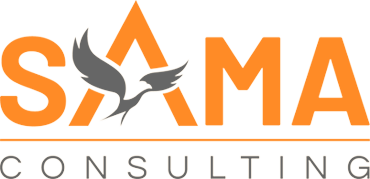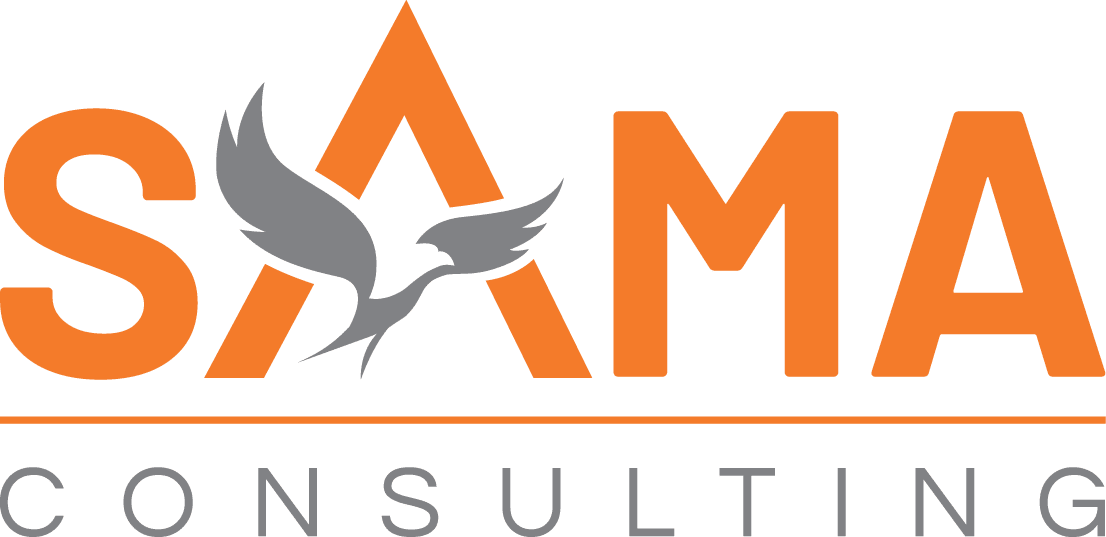
Choosing Between MRP or ERP: What Every Business Owner Should Consider
Introduction
ERP and MRP software play crucial roles in business management. ERP (Enterprise Resource Planning) integrates various functions across an organization, while MRP (Material Requirements Planning) focuses on managing production inventory based on demand forecasts.
Key takeaway: This article will discuss the key components, benefits, and considerations for choosing between MRP and ERP systems. Understanding these factors helps business owners make informed decisions tailored to their specific needs.
Choosing the right system is vital for optimizing operations and staying competitive. Whether you need a comprehensive solution like an ERP or a focused approach like an MRP, the decision impacts your business’s efficiency and growth.
For instance, in the construction engineering industry, effective project visibility is essential to optimize execution and resources. Additionally, automated QA assessments can ensure quality standards are met consistently. Moreover, streamlining supply chain processes through ERP or MRP systems can simplify operations significantly.
Need help with your ERP evaluation process?
We will provide a detailed, unbiased evaluation by assessing your business needs, shortlisting vendors, analyzing cost benefits, planning implementation, and mitigating risks.

While discussing the benefits of ERP systems, it’s worth mentioning how they can revolutionize business integration and automation as highlighted in this insightful article about Infor ION. Such advancements enable seamless data flow across departments, enhancing overall efficiency in organizations.
Understanding ERP Systems
Enterprise Resource Planning (ERP) integrates various functions of a business into a single unified system. It streamlines operations by connecting different departments, such as finance, HR, and supply chain, into one platform.
Evolution from MRP to ERP
Initially, businesses relied on Material Requirements Planning (MRP). This system focused on inventory management and production planning. However, the need for more comprehensive solutions led to the development of ERP systems. These advanced tools offer real-time data updates and scalability, addressing broader business needs.
Key Functionalities of ERP
ERP systems come with various modules that cater to different business functions:
- Financial Management: Manages accounting, budgeting, and financial reporting.
- Customer Relationship Management (CRM): Enhances customer interactions and sales processes.
- Human Resources (HR) Module: Handles employee records, payroll, and recruitment.
- Supply Chain Automation: Streamlines procurement, inventory management, and logistics.
Benefits for All Business Sizes
Implementing an ERP solution provides numerous advantages:
- For small businesses: Simplifies processes and improves efficiency.
- For medium enterprises: Offers scalability and integration across departments.
- For large corporations: Facilitates complex operations and global management.
Understanding MRP Systems
Material Requirements Planning (MRP) is a systematic approach to managing production inventory based on demand forecasts. Its primary role is to ensure that materials are available for production, products are available for delivery to customers, and inventory levels are kept at optimal levels.
Key Components of MRP Systems
1. Production Planning
Helps determine what products need to be manufactured, when they need to be produced, and in what quantities.
2. Production Reporting
Tracks the progress of production activities, providing insights into manufacturing efficiency and identifying any bottlenecks.
3. Inventory Management
Manages inventory levels by calculating the quantity of raw materials needed, ensuring that stock levels are neither too high nor too low.
Limitations of Traditional MRP Approach
Traditional MRP systems focus primarily on manufacturing processes and inventory management. They often lack the broader functionality found in comprehensive ERP systems:
- Limited integration with other business functions such as finance, HR, and customer service.
- Inability to provide real-time data updates across all departments.
- Scalability issues when trying to expand functionalities beyond manufacturing needs.
Businesses involved in complex industries like heavy equipment or automotive may find traditional MRP systems lacking due to these limitations.
Understanding these constraints helps in making an informed choice between MRP and ERP solutions tailored to specific business requirements.
Key Differences Between MRP and ERP Systems
The main differences between MRP and ERP systems can be seen in their scope, functionality, and suitability for different types of businesses or industries.
Scope
- MRP Systems: Focus primarily on production planning, inventory control, and managing manufacturing processes. They are designed to meet the needs of manufacturers by ensuring materials are available for production and products are available for delivery.
- ERP Systems: Cover a wider range of business functions beyond just manufacturing. They integrate various departments such as finance, human resources, sales, customer relationship management (CRM), and supply chain management into a single system.
Functionality
- MRP Systems: Offer key features like:
- Production Planning
- Inventory Management
- Scheduling
- ERP Systems: Provide more extensive features including:
- Financial Management
- Human Resources Management
- Customer Relationship Management (CRM)
- Supply Chain Automation
- Real-time Data Updates
Suitability
- MRP Systems: Best suited for manufacturing companies that need to streamline their production processes and manage inventory effectively. They are ideal for businesses mainly focused on production efficiency.
- ERP Systems: Suitable for various industries such as manufacturing, retail, healthcare, and logistics. They can support small businesses to large enterprises aiming for comprehensive business management.
If you are interested in optimizing your logistics services through ERP systems, you should visit Logistics Service Providers. Furthermore, if your business is considering a cloud strategy as part of your ERP implementation in order to maximize value and ensure a successful transition, it is crucial to Tailor Your Cloud Strategy: Choosing the Right Path. This article discusses the importance of considering your complete technology ecosystem to achieve your goals.
Understanding these differences will help you choose the right system based on your specific business needs and industry standards.
Key Components to Consider in an ERP System
1. Data Technology
Modern ERP systems use advanced data technology to provide real-time insights and analytics. This integration improves decision-making and operational efficiency. For example, using data technology in manufacturing management allows businesses to monitor production workflows in real-time, reducing downtime and improving productivity.
2. Manufacturing Management
ERP systems streamline manufacturing processes by integrating planning, scheduling, and execution. This ensures optimal resource allocation and efficient production cycles. Companies can track progress, identify bottlenecks, and adjust plans on the fly, leading to increased output and reduced waste.
3. Financials ERP Systems
Financial management is a crucial component of any ERP system. It includes modules for accounting, budgeting, asset management, and financial reporting. With a comprehensive financials ERP system, businesses can maintain accurate records, ensure compliance with regulations, and make informed financial forecasts.
4. Customer Relationship Management (CRM)
CRM modules within ERP systems help manage customer interactions and data throughout the customer lifecycle. Effective CRM enhances customer satisfaction by providing better service and personalized experiences. For instance, sales teams can access detailed customer histories to tailor their approach during sales pitches or support calls.
5. Human Resources Management
An effective HR module streamlines recruitment, payroll processing, performance tracking, and employee development. This centralization of HR activities ensures consistency and compliance while freeing up HR personnel to focus on strategic initiatives.
6. Supply Chain Management
Supply chain management within an ERP system coordinates all logistics from procurement to product delivery. By optimizing supply chain operations, businesses reduce costs and improve delivery times. For instance, implementing Supply Chain Optimization strategies can unlock efficiency and growth potential by streamlining operations, reducing costs, and enhancing agility for sustained success.
7. Warehouse and Inventory Management
Inventory management modules track stock levels in real-time across multiple locations. This ensures that businesses maintain optimal inventory levels without overstocking or running into shortages.
Each of these components plays a vital role in the overall effectiveness of an ERP system. By integrating various business functions into one cohesive platform, companies can achieve streamlined operations, enhanced productivity, and increased profitability.
Benefits of ERP Systems for Business Management
Brief Mention of Benefits
ERP systems offer numerous advantages, such as:
- Optimized production efficiency
- Efficient data handling
- Improved production scheduling
- Reduced inventory costs
- Enhanced supply chain visibility
Detailed Explanation of Each Benefit
Optimized Production Efficiency
ERP systems streamline various business processes. For instance, a manufacturing company can integrate its production schedules with inventory management. This reduces downtime and ensures resources are used efficiently.
Efficient Data Handling
With ERP, data from different departments is unified in one platform. This means less time spent on manual data entry and reduced errors. A retail business, for example, can track sales, inventory, and customer information seamlessly.
Improved Production Scheduling
ERP allows businesses to forecast demand accurately. This leads to better production planning. For example, an automotive company can adjust its production based on real-time orders and supply levels.
Reduced Inventory Costs
By providing accurate inventory data, ERP helps minimize overstocking and stockouts. A food and beverage company might find this particularly useful to avoid spoilage and reduce holding costs.
Enhanced Supply Chain Visibility
ERP systems offer real-time visibility into the supply chain. This enables better decision-making. An electronics manufacturer could use this feature to track components from suppliers and ensure timely delivery to customers.
These benefits illustrate how ERP can transform business operations across industries.
Choosing the Right Solution for Your Business
Considerations for Small Businesses
Small businesses often need cost-effective solutions. Modular ERP systems are advantageous here. They allow companies to start with essential modules and scale as they grow. Small businesses might also benefit from SaaS business models, which offer flexibility and lower upfront costs.
Example: A startup can begin with basic inventory and financial modules, adding CRM and HR functionalities later as it expands.
Considerations for Medium Businesses
Medium-sized enterprises have more complex needs. They should consider a balance of affordability and functionality. Private cloud ERP can be a suitable choice, providing better control over data security while still offering scalability.
Example: A mid-sized manufacturing firm might choose private cloud ERP to integrate production planning, inventory management, and customer relations efficiently.
Considerations for Large Businesses
Large enterprises require comprehensive systems to manage diverse operations across multiple locations. Public cloud ERP solutions offer the scalability needed. These systems can handle vast amounts of data and support extensive customization.
Example: A multinational corporation would benefit from a public cloud ERP that integrates global supply chain management, financial reporting, and compliance tracking.
Each business size has unique needs, making it crucial to assess specific requirements before selecting an ERP system.
Conclusion
Selecting between ERP and MRP systems requires careful assessment. Each business has unique needs.
- Assess Specific Business Needs: Identify what your business specifically requires. MRP might suit a manufacturing-focused company, while ERP offers broader functionality.
- Consult Vendors or Experts: Speak with software vendors or industry experts to understand the features and benefits of each system.
- Strategic Approach: Take a strategic approach in choosing the right system. Consider scalability, integration capabilities, and future growth.
Balancing MRP vs ERP is key. The right system enhances efficiency and drives growth. Making an informed decision ensures holistic business management and competitiveness in the market.
Need help with your ERP evaluation process?
We will provide a detailed, unbiased evaluation by assessing your business needs, shortlisting vendors, analyzing cost benefits, planning implementation, and mitigating risks.

